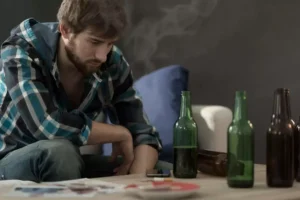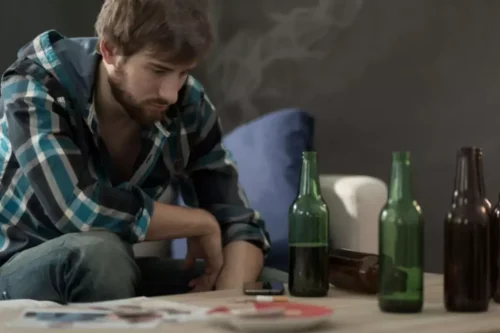
If approaching the other person opens up old wounds or re-traumatizes them, making amends isn’t advisable. If interacting with someone re-traumatizes you, or increases your risk of relapse, you might want to reconsider approaching them. You may have a list of people you want to make amends to personally. If you’re following the 12 Steps, making a list is Step 8. Every month, 150,000 people search for addiction or mental health treatment on Recovery.com.

Don’t settle for an apology.
However, it is worth mentioning other types of recovery programs will also include the amends process at a specific point in your program. When you make amends, you acknowledge and take responsibility for your actions that have hurt others. They take different forms, including direct amends, indirect amends, and living amends. Step Nine can leave you emotionally exhausted; it’s a difficult step to navigate. But the rewards you’ll reap from living amends can help make the challenges easier and more productive.
New Start Recovery
That’s because it attempts to rectify the outward consequences of the disease. You can start making amends by showing up, even if it’s years later, to do the things you said you’d do. If you are unsure of how you should make amends in a certain situation, you can consult with your sponsor or counselor about it. He or she will have helpful advice and wisdom that may help you make the right decision on how to proceed.

What Step in AA Is Making Amends?

But what happens when the person you need to make amends with dies before you’re able to apologize and change your ways? Unfortunately, this scenario plays out much too often in the lives of people who didn’t get a chance to correct their mistakes and past behaviors in time. Though some of these supporters might be new friends you meet in treatment or group therapy, it’s also vital to reconnect with people you knew before seeking help. However, they will likely still feel hurt by how you treated them and might be hesitant to forgive you, no matter how sincerely you apologize. Making amends goes beyond merely saying you’re sorry because it involves demonstrating your earnest commitment to change.

We blame ourselves for certain things that happened – sometimes rightfully, and sometimes not. We are seeking accountability for our own actions and holding ourselves to the standards of our own values and our 12 Step program. It’s important to have a plan in place before we reach out. We can’t marijuana addiction know for certain how another person will respond—or even how the interaction might affect us emotionally. So be sure to talk with your sponsor and/or support group about your plan in the event that you need support.
Sometimes I can listen supportively for a short period of time. Over the years, in small bits and pieces, I have been able to share small pearls of my Al-anon wisdom. Notice the words living amends “right to resentment” and “underserved qualities” in there? It is about what we do despite that wrongdoing, “abandoning our right to resentment . . . “. Making amends does not undoing the wrongdoing, just as forgiveness doesn’t undo the wrongdoing.
- It makes it hard to remember things that happened before or after.
- After driving others away with your self-destructive behavior, making amends is one way to start repairing those connections.
- It’s much easier to just apologize and move on, but committing to living your life differently looks different.
- Making amends helps repair relationship problems caused by addiction.
Addiction Treatment Programs
- All types of amends are good, but living amends are some of the best kinds you can make!
- For example, we might intend to go to a friend’s birthday party, but in actuality, we fail to show up for the event.
- This process is described in steps 8 and 9 of the 12-Step Program.
- The origin of living amends in modern use relates to addiction recovery and substance abuse treatment.
Like the definition says, amends is something we do to make up for something we feel guilty for. It is different from an apology, which is “a regretful acknowledgment of an offense or failure”. “In addiction recovery there is a lot of trial and error to figure out what works for each person,” says Ellyn Lowry, Clinical Coordinator at Centerstone.
However, these promises are usually the result of deep feelings of shame, guilt, and regret and may not be genuine for some. Many times, these kinds of promises serve to alleviate the wrongdoer’s guilt and so that they can say they apologized before their loved one died. With these kinds of promises, there may not be enough genuine intention of changing their hurtful patterns and behaviors. Completing a rehab program is an accomplishment to be proud of, but it’s only the first step on a lifelong journey toward sobriety. For sustained success, you’ll need to surround yourself with a robust support system of people who will cheer you on as you work toward your goals. We provide a safe, nurturing, and non-judgmental space where clients can focus solely on their recovery journey.
